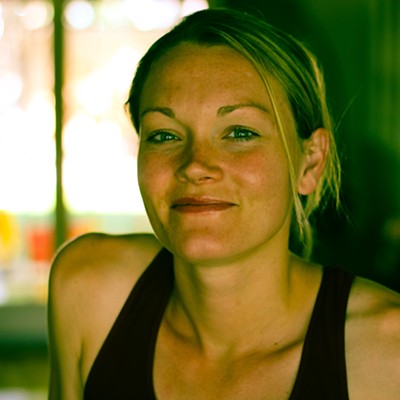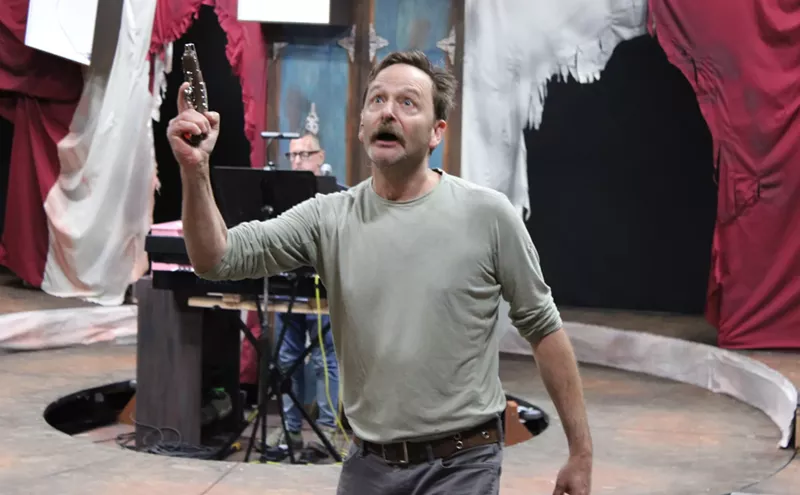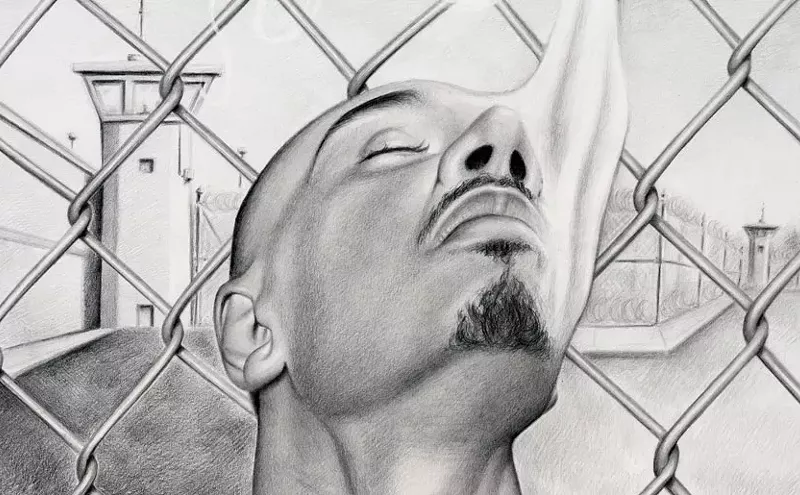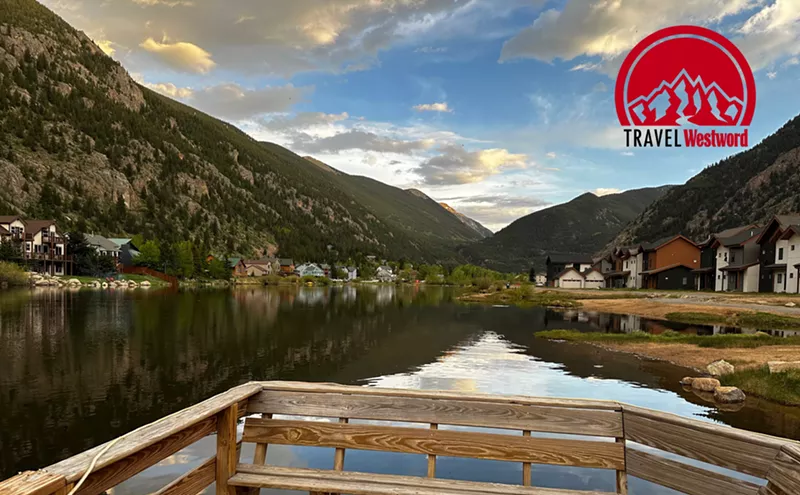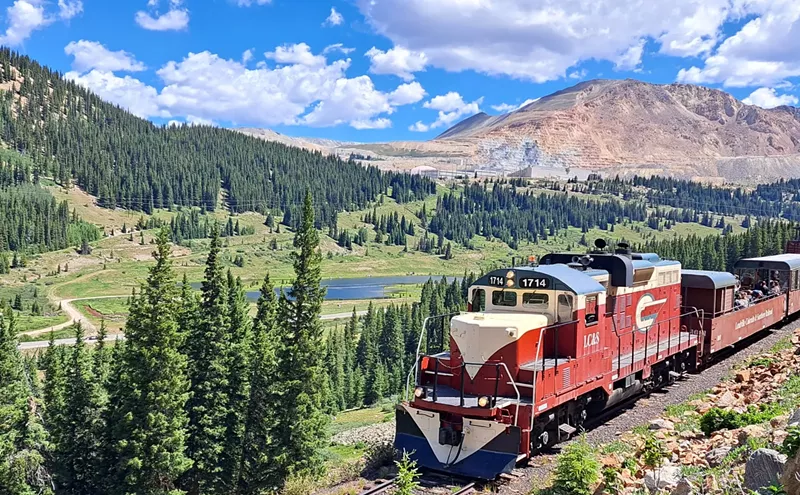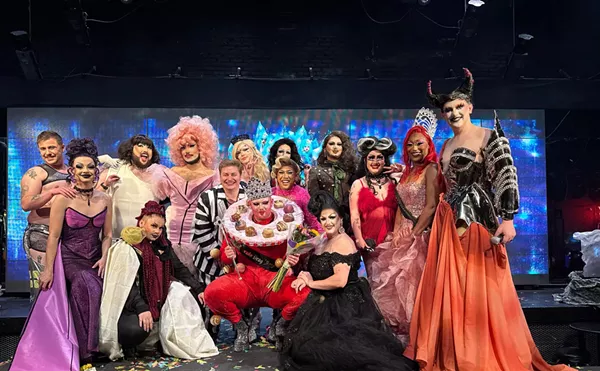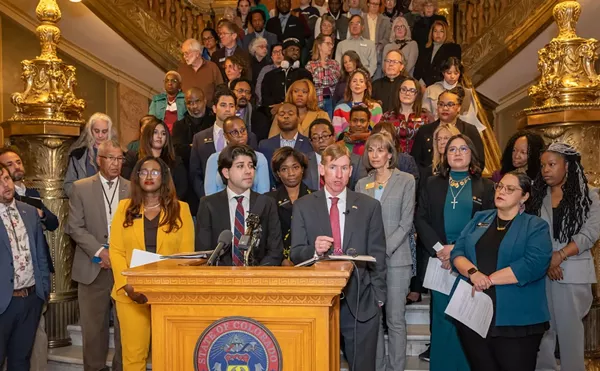You can find art all over town — not just on gallery walls. In this series, we'll be looking at some of the local artists who serve up their work in coffeehouses and other non-gallery businesses around town.
The Mobile Museum of American Artifacts is Laurelin Kruse’s touring museum of personal artifacts and their stories. MMoAA merges history and public art in “an archaeology of the present,” says curator/creator Kruse, traveling the nation with its collection of significant – and sometimes insignificant – connections to everyday American life.
The museum is now rolling through Colorado. It set up shop at the Children’s Museum of Denver on Saturday, and now it’s headed off for visits at the Byers General Store, 568 US-36 in Byers, on Tuesday, October 13, and the University of Colorado's Visual Arts Complex in Boulder on Wednesday, October 14. From there, the museum will make seven stops in the San Luis Valley area between October 16 and October 21.
Relying exclusively on objects that museum-goers have donated, MMoAA tells a story about “people, their things and how we all make meaning in our lives,” says Kruse. The one and only requirement for submitting an object to the museum is that it comes with a story. And some of those stories have made national headlines.
For example, there's the Mourning Flower Journal, kept by the widow of Leonard Leslie Morris between 1941 and 1945, when it abruptly stops in the middle of the notebook; until then, it chronicles every flower its author put on her husband’s grave. In May 2013, the owner of an antiques store in Creede discovered the notebook in a trunk of goods acquired from a dealer in Oklahoma, and Kruse purchased it for $40.
Emma Speer donated the 2014 Los Angeles parking ticket after she'd visited a classmate in L.A. The two had been corresponding through text messages, sharing ideas for screenplays, short stories and science-fiction novels through a series of Google docs. On a whim, Speer’s friend invited her to visit, and she bought her plane ticket that night. Speer described the trip to Kruse as the kind of romance you can only imagine as a kid.
Rob Kancler submitted a crystal he received from a woman named Sandy at a yoga retreat. Sandy told Kancler that the crystal was in her pocket when she died of kidney failure and was revived by paramedics. After the ordeal, she took the crystal out of her pocket, and noticed a newly formed protuberance on the quartz.
A native of Alamosa, Kruse pursued her undergraduate degree in art and American studies. After graduation she stayed east for a year, then moved to California, where she works on her family’s farm and takes various part-time and odd jobs to fund her unique experiment.
The idea for a mobile museum of artifacts came to her in 2012; she'd worked in several rare book libraries and archives, and realized that “the archival process can increase the value and meaning of artworks and historical artifacts,” she says.
And she wanted it to be open to anyone. “I thought that the process of archiving one man’s work was ridiculous,” Kruse says. “I realized that the way we create history shapes how we make meaning in our lives, and I was curious about whether we could use the process of archiving to get people to pay attention to things they don’t normally notice....Maybe that’s because I grew up in a small town, and I was used to the public overlooking us.”
The MMoAA, Kruse decided, would “exhibit moments of everyday experience and American life.” Anybody could be included in the museum — as long as their object had a story to tell.
Kruse bought her trailer in the spring of 2014, and drove it empty across the country. In July, the museum made its first stop in New Haven, Connecticut, where Artspace New Haven helped Kruse get started. “I put about five things in an empty trailer in New Haven, and I didn’t know if the idea would work. I was terrified,” Kruse says.
Over the next three weeks, she parked her museum at various locations around the town — farmers markets, brick-and-mortar museums — and waited. “People would drive by, feel inspired and go home and bring stuff back, sometimes within the hour,” Kruse says.
That process is how Kruse has been collecting stuff ever since; she currently has about eighty artifacts, and is continually adding to the collection. Part of the thrill comes from taking this collection on the road. “It can be this surprising thing that pops up,” says Kruse. “In Gloucester, Massachusetts, I parked at the beach at sunrise, and that morning before eight I had sixty people. I try to find unusual locations with heavy foot traffic.”
Kruse’s mission is “sharing objects from very different places with people all across the country,” she says. “To me, there’s something really intimate about having a physical object. My intention is to create an intimate connection between people who would never meet each other otherwise.”
Since its inception, the museum has traveled to ten cities; its current Colorado tour is the first in this region. Admission is free, although patrons can donate whatever the cost of a gallon of gas is at the time. The museum's visit is supported by Colorado Creative Industries, the Children’s Museum of Denver, M12 Collective, Byers General Store, the Art and Art History departments at CU-Boulder and the San Luis Valley Museum Association. For more information, visit the MMoAA’s website.
Follow Jamie Siebrase on Twitter.

Audio By Carbonatix
[
{
"name": "GPT - Billboard - Slot Inline - Content - Labeled - No Desktop",
"component": "23668565",
"insertPoint": "2",
"requiredCountToDisplay": "2"
},{
"name": "STN Player - Float - Mobile Only ",
"component": "23853568",
"insertPoint": "2",
"requiredCountToDisplay": "2"
},{
"name": "Editor Picks",
"component": "17242653",
"insertPoint": "4",
"requiredCountToDisplay": "1"
},{
"name": "Inline Links",
"component": "18838239",
"insertPoint": "8th",
"startingPoint": 8,
"requiredCountToDisplay": "7",
"maxInsertions": 25
},{
"name": "GPT - 2x Rectangles Desktop, Tower on Mobile - Labeled",
"component": "24956856",
"insertPoint": "8th",
"startingPoint": 8,
"requiredCountToDisplay": "7",
"maxInsertions": 25
},{
"name": "Inline Links",
"component": "18838239",
"insertPoint": "8th",
"startingPoint": 12,
"requiredCountToDisplay": "11",
"maxInsertions": 25
},{
"name": "GPT - Leaderboard to Tower - Slot Auto-select - Labeled",
"component": "17676724",
"insertPoint": "8th",
"startingPoint": 12,
"requiredCountToDisplay": "11",
"maxInsertions": 25
}
]

